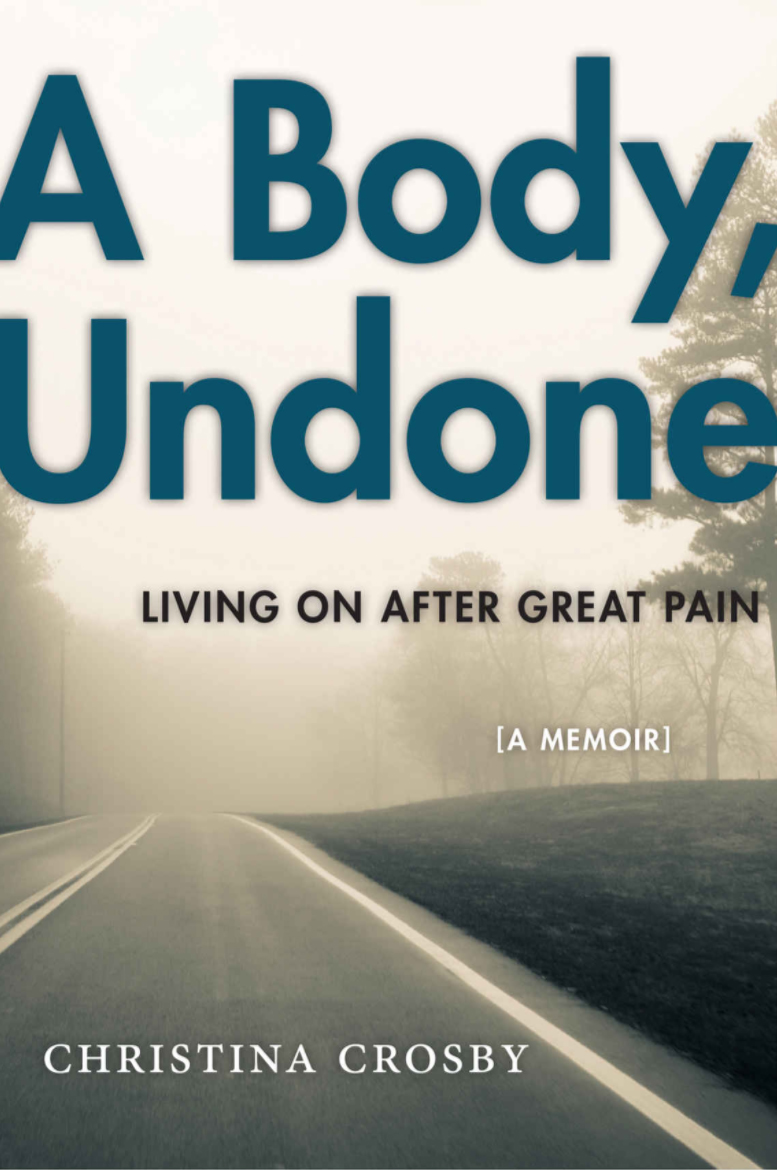Presented by the Alice Paul Center for Research on Gender, Sexuality and Women
As one approach to the question, “What’s Left of Queer Studies Now," Christina Crosby and Janet Jakobsen explore the relation between queer studies and disability studies. In contrast to the liberal individual who is the bearer of rights, queer theory offers ways of conceptualizing the world as relationally complex, which, as Jakobsen has argued, demands a radical rethinking of ethical life. Christina Crosby's memoir of living with spinal cord injury, A Body Undone: Living on After Great Pain, brings to this understanding an embodied immediacy, and “asks readers to recognize how messy, precarious, and queer, in every sense of the word, life in a body can be” (TheNewYorker.com). In an open conversation, Crosby and Jakobsen will ask: How are lives sustained under conditions of fragility and dependency? What type of labor, including caring labor, is required for living on and how is it shared or divided – whether within a household or across the global division of labor? How are grief and loss entwined with possibility and desire? In A Body, Undone, Crosby puts into words a broken body that seems beyond the reach of language and understanding. Starting from this place, Crosby and Jakobsen will address both loss and living on.
Christina Crosby is a professor of English, Feminist, Gender and Sexuality Studies at Wesleyan University. She held a National Endowment for the Humanities Fellowship for College Teachers and was a member of the Institute for Advanced Study in Princeton. She is the author of The Ends of History: Victorians and the 'Woman Question' (1991) and has published essays and reviews in Victorian Studies, PMLA, College English, and elsewhere. In A Body, Undone: Living On After Great Pain, Crosby puts into words a broken body that seems beyond the reach of language and understanding. She writes about a body shot through with neurological pain, disoriented in time and space, incapacitated by paralysis and deadened sensation. To address this foreign body, she calls upon the readerly pleasures of narrative, critical feminist and queer thinking, and the concentrated language of lyric poetry. Working with these resources, she recalls her 1950s tomboy ways in small-town, rural Pennsylvania, and records growing into the 1970s through radical feminism and the affirmations of gay liberation.
Janet R. Jakobsen will be joining APC the week of January 22nd, as our second annual Diversity Scholar. Dr. Jakobsen is Chair and Claire Tow Professor of Women's Gender and Sexuality Studies at Barnard College, Columbia University. She served fifteen years as Director of the Barnard Center for Research on Women (BCRW), and she has also served as Dean for Faculty Diversity and Development. As Director of BCRW, Professor Jakobsen founded the webjournal, Scholar & Feminist Online, along with the New Feminist Solutions series of activist research projects with community-based organizations, such as the National Domestic Workers Alliance, Queers for Economic Justice, the New York Women’s Foundation, and A Better Balance: Work and Family Legal Center. She is the author of Working Alliances and the Politics of Difference: Diversity and Feminist Ethics (Indiana University Press, 1998). With Ann Pellegrini she co-wrote Love the Sin: Sexual Regulation and the Limits of Religious Tolerance (New York University Press, 2003) and co-edited Secularisms (Duke University Press, 2008), and with Elizabeth Castelli she co-edited Interventions: Academics and Activists Respond to Violence (Palgrave Press, 2004). She has held fellowships from the American Association of University Women, the Center for the Humanities at Wesleyan University, and the Center for the Study of Values in Public Life at Harvard Divinity School. She has taught as a Visiting Professor at Wesleyan University and Harvard University.



